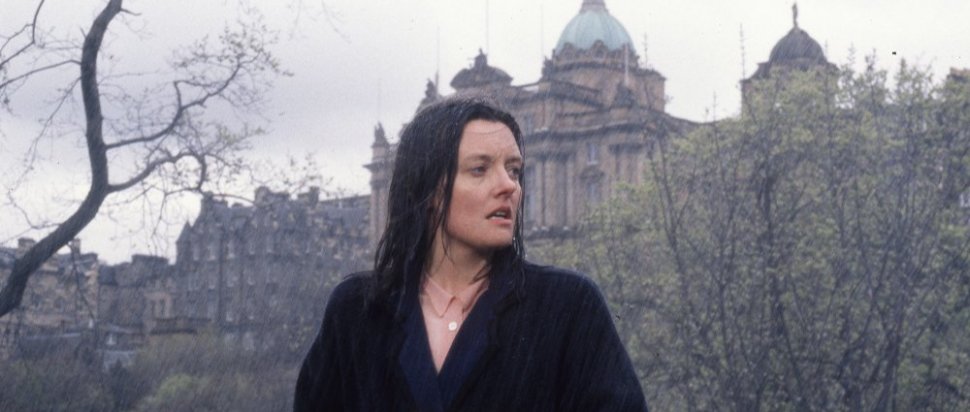Blue Black Permanent
The BFI’s re-release of Margaret Tait’s Blue Black Permanent acts as a neat greatest-hits collection for the Scottish artist
Margaret Tait’s career as a poet and filmmaker stretched from the early 1950s almost all the way through to her death in 1999, during which time she proved herself one of 20th century Scotland’s most empathetic and hands-on chroniclers. This BFI release of 1992's Blue Black Permanent will be celebrated for bringing Tait's sole feature-length work to a wider audience, but it's best viewed as a Tait starter-pack.
With the feature as its centrepiece, the release draws from across Tait's work to present Blue Black Permanent alongside three of her earlier films. What’s especially pleasing about the nature of the package is that the accompanying shorts, rather than being a rushed grab-bag, contain recognisable strands of Tait’s work that all feed directly into the feature.
Blue Black Permanent follows two timelines: one with visual artist Barbara (Celia Imrie) and the other with her mother, Greta (Gerda Stevenson). While Barbara attempts to understand and grapple with her mother’s untimely death, Tait simultaneously recounts the events leading up to Greta’s passing years earlier. These flashbacks are a memory play composed of creaking textures and half-remembered dreams, but this writer longed for Tait to commit fully to that combination instead of continually cutting back to Barbara, whose purpose is merely to process the flashbacks for us. There’s more than enough detail in Greta’s sequences – details of Scottish landscapes and old houses – to make the film a moving enough elegy.
Still, when taken alongside the shorts, Tait’s artistry is undeniable. See, for example, how Portrait of Ga precedes Blue Black Permanent’s maternalism, or how Rose Street’s quiet evocation of the Edinburgh street of the same name flaunts Tait’s knack for documenting Scottish culture. Even The Leaden Echo and the Golden Echo, a visual interpretation of Gerald Manley Hopkins’ eponymous poem, showcases Tait’s editing skills, which carefully avoid making the images too literal an adaptation of Hopkins’ text.
Released on dual format (Blu-ray and DVD) on 17 Jun by BFI; Blue Black Permanent screens at Summerhall on 15 Jun (tickets are free, register here), followed by a post-screening discussion with members of the cast and crew, including actor and poet Gerda Stevenson, who plays lead character Greta, Kate Swan (Co-Producer/Executive Producer), Rod Stoneman (Executive Producer/Deputy Commissioning Editor for Channel 4), Andrea Calderwood (Location Manager), along with Douglas Weir (Technical Producer, BFI), who oversaw the film’s remastering, Dr Sarah Neely, Director of Margaret Tait 100 and author of a book-length study of Tait’s films, and Richard Demarco, gallerist and host for the event, who was a great friend of Tait’s as well as an early champion of her work
